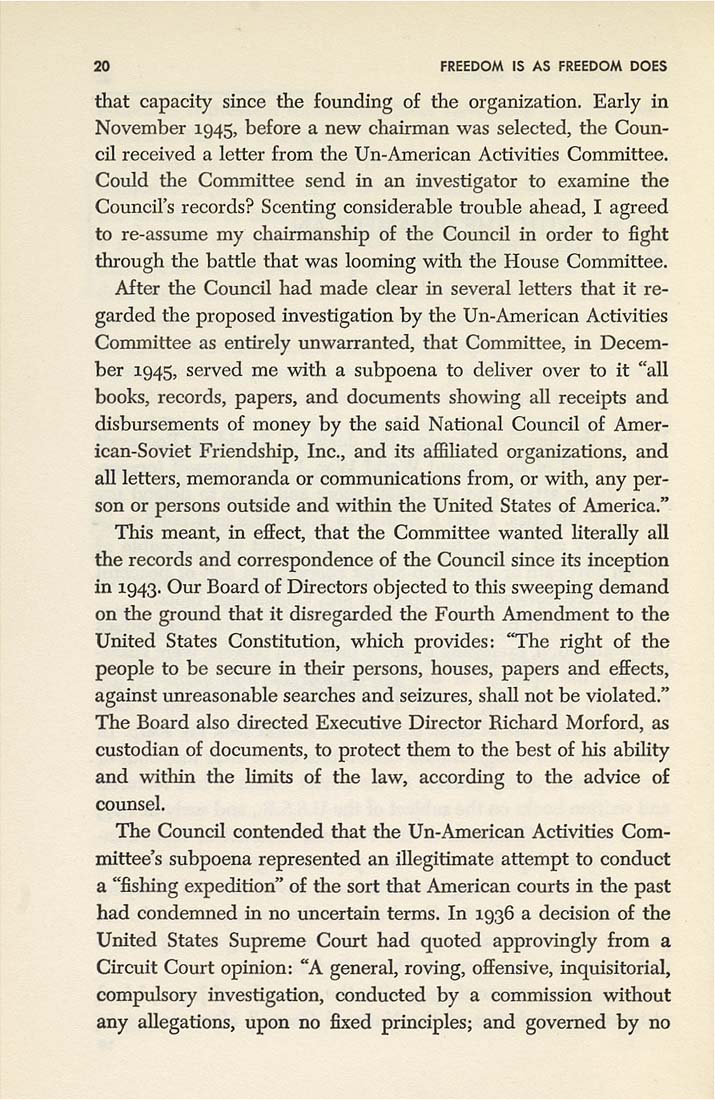20 FREEDOM IS AS FREEDOM DOES
that capacity since the founding of the organization. Early in
November 1945, before a new chairman was selected, the Coun-
cfl received a letter from the Un-American Activities Committee.
Could the Committee send in an investigator to examine the
Council's records? Scenting considerable tiouble ahead, I agreed
to re-assume my chairmanship of the Council in order to fight
through the battle that was looming with the House Committee.
After the Council had made clear in several letters that it re¬
garded the proposed investigation by the Un-American Activities
Committee as entirely unwarranted, that Committee, in Decem¬
ber 1945, served me with a subpoena to deliver over to it "all
books, records, papers, and documents showing all receipts and
disbursements of money by the said National Council of Amer¬
ican-Soviet Friendship, Inc., and its affihated organizations, and
aU letters, memoranda or communications from, or with, any per¬
son or persons outside and within the United States of America."
This meant, in effect, that the Committee wanted literally aU
the records and correspondence of the Council since its inception
in 1943. Our Board of Directors objected to this sweeping demand
on the ground that it disregarded the Fourth Amendment to the
United States Constitution, which provides: "The right of the
people to be secure in their persons, houses, papers and effects,
against unreasonable searches and seizures, shall not be violated."
The Roard also directed Executive Director Richard Morford, as
custodian of documents, to protect them to the best of his ability
and wdthin the Hmits of the law, according to the advice of
counsel.
The Council contended that the Un-American Activities Com¬
mittee's subpoena represented an illegitimate attempt to conduct
a "fishing expedition" of the sort that American courts in the past
had condemned in no uncertain terms. In 1936 a decision of the
United States Supreme Court had quoted approvingly from a
Circuit Court opinion: "A general, roving, offensive, inquisitorial,
compulsory investigation, conducted by a commission without
any allegations, upon no fixed principles; and governed by no
|








